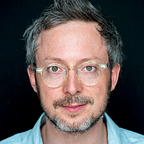2020. Year of the Rat, no… Bat #Covid!
What we learned when Covid killed our product, one of Europe’s largest technology events. By TOA founder Niko Woischnik.
For TOA, 2020 was challenging to say the least but ultimately we can be grateful for the health of our team and families. I personally went from spending most days travelling the global conference circus and making new friends to spending more time with family, old friends and nonlinear nature programming (i.e. parks and forests).
It was grounding and made me realise how important it is to deepen existing relationships and how I have neglected it in the past. Einstein reportedly said that compound interest was “the eighth wonder of the world”. In a riff on good ol’ Albert, Naval Ravikant rightly pointed out that what applies to finance, applies to relationships as well.
Many industries were hit hard by this pandemic. At TOA we are certainly privileged to be working in the so-called “knowledge” industry with the comfort of home office and a country that stepped in with Kurzarbeit.
(Side note: I personally dislike the usage of “knowledge worker” and would argue that the bakery around the corner has at least as much futureproof knowledge than any startup given the change of needs in our industry and the value of shokunin in others. But that’s a topic for another day, to be discussed over some Mezcal some moons in the future.)
As an industry, however, conferences and trade shows were hit particularly hard. The learnings and prognostications we have been making at TOA ever since the pandemic started may serve others so I will start sharing them openly from time to time.
Don’t take any of the following as fixed beliefs. If my time working at Amazon taught me one thing, then it’s to constantly challenge your convictions and change your mind often. Amazon made their leadership principles public and these are worth checking out if you are in need of yet another mental model.
Speaking of mental models…
The Happiness Formula
In one of our virtual formats last year, Meik Wiking, founder of the Happiness Research Institute confirmed the workings of the so-called happiness formula:
Happiness = Reality — Expectations.
Sure, we all have goals and plans in place and with the right purpose, it is fulfilling to work towards reaching these. But, our happiness should never depend on reaching them.
If this year taught me one thing, then it is to keep expectations low.
Don’t dwell on the past, seek the new
I find purpose in TOA’s mission to help make people, organisations and the planet become futureproof. Conferences are an effective product to leverage for this mission. With a tested business model and network effects.
(Caution! Startup/VC buzzword bingo ahead:)
But conferences are clearly not the most scalable, moat-y or flywheel inducing product to leverage.
So should TOA rely on events moving forward?
The TLDR version is: No!
At the end of February 2020 I attended TOA Tokyo in Japan. Flying back from Asia at a time when the virus had not yet reached the consciousness of the West, I felt nervous about what was to come. Having to make a call on whether our physical flagship festival in Berlin could take place or not became a roller coaster of optimism and pessimism. I remember becoming optimistic when I saw how well Asia managed to keep the spread under control only to realise that Europe would not manage to do the same. Once we decided to cancel the physical event our core product that gathered 20,000 curious minds annually effectively died. Or let’s say, it went into Coma. 80% of our revenues were lost.
It was painful and only to be enjoyed by those who seek uncertainty. But our team quickly realised that our mission was not only bigger than our product, it was actually independent from it.
Looking inward we asked ourselves: how can we deliver on our mission when our core product is “off the table”? In multiple surveys and 1on1 learning calls we further reconnected with our community to understand whether their needs had changed.
Why people come to TOA
We found that the needs of our community had not only stayed consistent, the intensity of those needs had actually grown. According to our surveys, people still connect with TOA for 3 reasons:
inspiration / learning / community
Our value proposition had not changed.
So while the medium that used to deliver that value was dead, new paths could be forged. With digital these paths can be built faster and wider, allowing more people to participate.
Ok, this post is getting long! ;-)
In my next post I’ll share the experiments we made in 2020 serving these 3 needs and how we plan to position TOA moving forward. I’ll add some data points as well. Would love to hear your learnings, too.
Meanwhile: Stay safe and remember: don’t let the label label you!
Niko
